Hyundai Kona VS Kia Ceed Sportswagon
Hyundai Kona
The Hyundai Kona blends a bold design with a versatile interior, making it a standout choice in the compact SUV market. Its crisp handling and responsive steering provide an engaging driving experience, whether in the city or on the open road. The vehicle also offers a range of features designed to enhance comfort and connectivity, ensuring a pleasurable journey for both driver and passengers.
more informationKia Ceed Sportswagon
The Kia Ceed Sportswagon is a versatile estate car that combines practicality with a touch of elegance. It offers a spacious interior, making it ideal for families or those with an active lifestyle. The vehicle's sleek design and advanced features make it a strong contender in the competitive estate car market.
more information @ hyundai.news
@ hyundai.news
 @ hyundai.news
@ hyundai.news
 @ hyundai.news
@ hyundai.news
 @ hyundai.news
@ hyundai.news
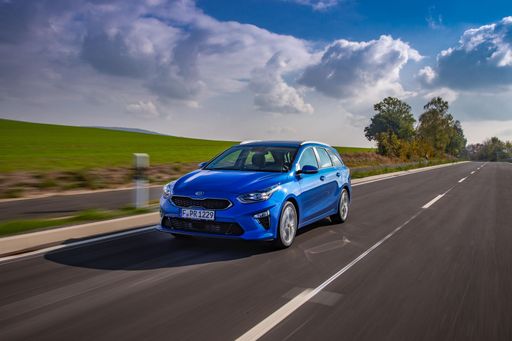 @ press.kia.com
@ press.kia.com
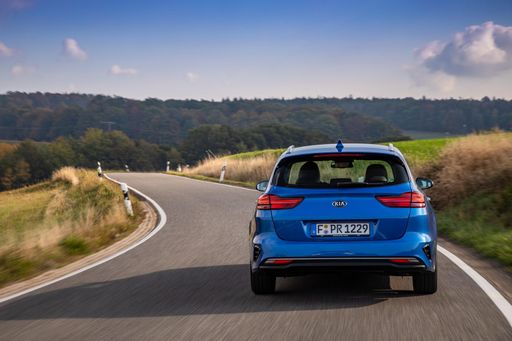 @ press.kia.com
@ press.kia.com
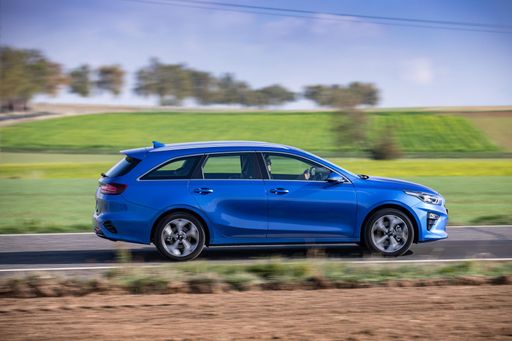 @ press.kia.com
@ press.kia.com
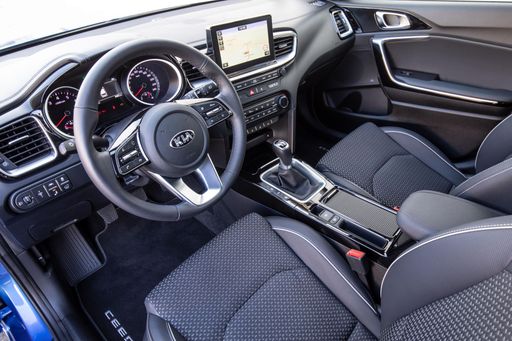 @ press.kia.com
@ press.kia.com
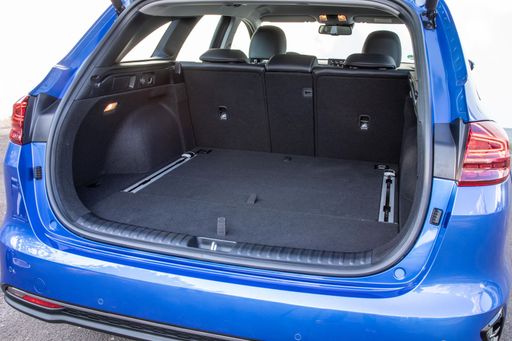 @ press.kia.com
@ press.kia.com
Costs and Consumption |
|
|---|---|
|
Price
about 24400 - 44800
$
|
Price
about 24600 - 33800
$
|
|
Consumption L/100km
4.5 - 6.7
L
|
Consumption L/100km
6 - 6.4
L
|
|
Consumption kWh/100km
14.6 - 16.8
kWh
|
Consumption kWh/100km
-
|
|
Electric Range
377 - 514
km
|
Electric Range
-
|
|
Battery Capacity
1.3 - 65.4
kWh
|
Battery Capacity
-
|
|
co2
128, 103, 141, 152, 0
g/km
|
co2
137 - 146
g/km
|
|
Fuel tank capacity
38 - 47
L
|
Fuel tank capacity
50
L
|
Dimensions and Body |
|
|
Body Type
SUV
|
Body Type
Wagon
|
|
Seats
5
|
Seats
5
|
|
Doors
5
|
Doors
5
|
|
Curb weight
1370 - 1773
kg
|
Curb weight
1335 - 1425
kg
|
|
Trunk capacity
466
L
|
Trunk capacity
512 - 625
L
|
|
Length
4350 - 4385
mm
|
Length
4600 - 4605
mm
|
|
Width
1825
mm
|
Width
1800
mm
|
|
Height
1580 - 1585
mm
|
Height
1422 - 1465
mm
|
|
Payload
420 - 490
kg
|
Payload
455 - 485
kg
|
Engine and Performance |
|
|
Engine Type
Petrol, Full Hybrid, Electric
|
Engine Type
Petrol MHEV, Petrol
|
|
Transmission
Manuel, Automatic
|
Transmission
Automatic, Manuel
|
|
Transmission Detail
Manual Gearbox, Automat. Schaltgetriebe (Doppelkupplung), Reduction Gearbox
|
Transmission Detail
Automat. Schaltgetriebe (Doppelkupplung), Manual Gearbox
|
|
Drive Type
Front-Wheel Drive, All-Wheel Drive
|
Drive Type
Front-Wheel Drive
|
|
Power HP
100 - 218
HP
|
Power HP
100 - 140
HP
|
|
Acceleration 0-100km/h
7.8 - 13.3
s
|
Acceleration 0-100km/h
9.7 - 13.5
s
|
|
Max Speed
162 - 208
km/h
|
Max Speed
178 - 197
km/h
|
|
Torque
200 - 265
Nm
|
Torque
172 - 253
Nm
|
|
Number of Cylinders
3 - 4
|
Number of Cylinders
3 - 4
|
|
Power kW
74 - 160
kW
|
Power kW
74 - 103
kW
|
|
Engine capacity
998 - 1598
cm3
|
Engine capacity
998 - 1482
cm3
|
|
Top speed
162 - 208
km/h
|
Top speed
178 - 197
km/h
|
General |
|
|
Model Year
2024
|
Model Year
2024
|
|
CO2 Efficiency Class
D, C, E, A
|
CO2 Efficiency Class
E
|
|
Brand
Hyundai
|
Brand
Kia
|
Hyundai Kona
The Hyundai Kona: A Comprehensive Overview
The Hyundai Kona has established itself as a standout in the compact SUV segment, blending innovation with performance and style. As the automotive world moves towards more sustainable and efficient options, the Kona offers a variety of powertrains, from traditional petrol engines to full hybrids and all-electric models.
Powertrain Options and Performance
The Hyundai Kona's powertrain choices cater to a wide range of preferences. For petrol enthusiasts, the Kona offers a 1.0L T-GDI engine, delivering 100 PS, and a more robust 1.6L T-GDI variant with up to 170 PS. Those looking for efficiency without sacrificing power can consider the full hybrid model, offering 129 PS and an impressive consumption of 4.5 L/100km.
For a greener option, the all-electric Kona provides a compelling case. With battery capacities of up to 65.4 kWh, the electric Kona offers power outputs of 156 to 218 PS, and efficiencies as low as 14.6 kWh/100km, enabling an electric range of up to 513 km.
Technical Specifications and Innovations
Built on a robust platform, the Kona delivers versatility and reliability. With a choice between manual or dual-clutch automatic gearboxes, along with options for front-wheel or all-wheel drive, the Kona ensures a tailored driving experience. The handling is enhanced by the car's lightweight construction, balancing a 1370 to 1773 kg curb weight with dynamic performance.
The Kona's design doesn't compromise cargo space for style; it offers a generous 466 L boot capacity. With a relatively compact body, measuring 4350 to 4385 mm in length, the Kona easily navigates urban environments while still commanding a strong road presence with its 1825 mm width.
Efficiency and Eco-Friendliness
Hyundai is committed to reducing emissions, as evidenced by the Kona's CO2 efficiency ratings, which range from class A for electric models to class D for some higher-performance petrol variants. The focus on reducing environmental impact without sacrificing driving pleasure is notable throughout the Kona range.
Costing and Value
The Hyundai Kona offers commendable value for money. Pricing starts at €26,400 and reaches up to €50,690, depending on the chosen configuration. The monthly running costs range from €956 to €1090, with a cost per kilometre of 38.3 to 43.6 cents, making it a competitive option in its class.
Conclusion: Modern, Efficient, and Versatile
The Hyundai Kona stands as a testament to Hyundai's commitment to innovation, efficiency, and practicality. Whether you are inclined towards a traditional combustion engine, a hybrid for a balance of power and efficiency, or a full electric model for maximum eco-friendliness, the Kona provides a tailored solution for each unique driver preference.
Kia Ceed Sportswagon
Introducing the Kia Ceed Sportswagon: A Blend of Style and Functionality
The Kia Ceed Sportswagon has entrenched itself as a preferred choice for families and individuals alike, merging dynamic styling with an impressive suite of functionalities. Embodying the attributes of a classic estate car, it offers ample space without compromising on elegance or driving performance.
Innovative Powertrains: Bridging Performance and Efficiency
The Ceed Sportswagon comes equipped with a range of powertrains designed to meet varying customer needs. From traditional petrol options to innovative mild-hybrid and plug-in hybrid systems, the range is catered to deliver on efficiency and power. The plug-in hybrid variant, especially, stands out with its ability to travel up to 50 km purely on electric power, and a remarkable combined fuel consumption of 1.3 L/100 km.
Performance Specifications: Power Meets Precision
Depending on the choice of engine, drivers can experience power outputs ranging from 100 to 141 PS, complemented by torque values between 172 and 265 Nm. Acceleration capabilities vary, with 0-100 km/h achieved in times ranging from 9.7 to 13.5 seconds, providing a performance spectrum to cater to different needs, be it efficiency or spirited driving.
State-of-the-Art Technology and Safety
Kia has packed the Ceed Sportswagon with an array of technological innovations aimed at improving safety and driving experience. From advanced driver-assistance systems to connectivity solutions, the car ensures both the driver and passengers stay safe, informed, and entertained throughout their journey.
Design and Comfort: A Space That Inspires
Aesthetically, the Ceed Sportswagon is both modern and sleek, with a length of up to 4605 mm and a height of up to 1465 mm ensuring a spacious interior. The boot space offers between 437 and 625 litres, catering not only to daily errands but also to road trips. Inside, the seating configuration comfortably accommodates five passengers, making it ideal for families and groups.
Economic Offering: Value for Money
With prices ranging from €26,590 to €42,080, the Ceed Sportswagon presents itself as an economically compelling option without skimping on quality or features. Furthermore, with different equipment lines available, from the elegant Vision to the sport-oriented GT Line, buyers have the flexibility to choose a model that aligns with their lifestyle and preferences.
In Summary: The Complete Package
The Kia Ceed Sportswagon is a testament to Kia's commitment to innovation, quality, and design. Perfectly balancing practicality and performance, it remains a formidable contender in the estate segment, appealing to those who seek a versatile vehicle capable of addressing a multitude of daily driving needs with flair and reliability.
